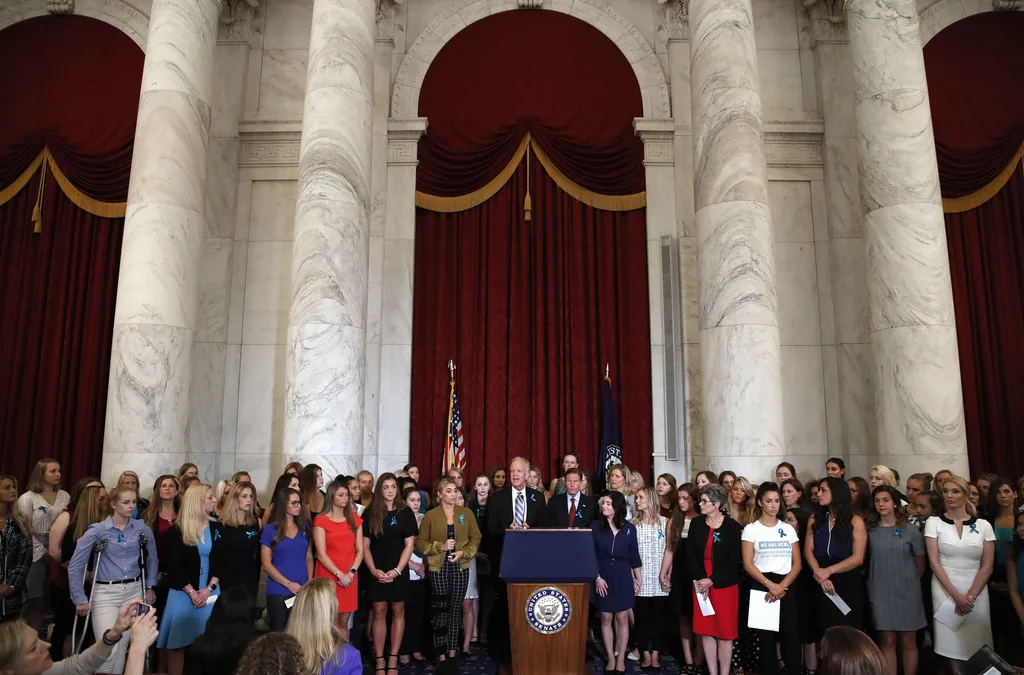A key Michigan Supreme Court ruling issued on Thursday found that the state’s anti-discrimination laws also cover sexual orientation—providing formal legal protections for LGBTQ people.
MICHIGAN—In a key ruling on Thursday, the state’s anti-discrimination law was extended by the Michigan Supreme Court to also include formal protections based on sexual orientation—cementing new legal protections statewide for LGBTQ residents who are discriminated against in a variety of areas.
What happened?
In 2019, Rouch World, an event center in Sturgis, Michigan, declined to host a same-sex wedding—saying it conflicted with the owner’s religious beliefs. That same year, an Upper Peninsula hair-removal business declined to serve a transgender woman. Those instances of discrimination led to a state Department of Civil Rights investigation—and eventually a lawsuit—that ultimately found its way up to the Michigan Supreme Court, which issued a precedent-setting decision in the case on Thursday afternoon.
The argument was largely centered around a clause in the Elliott-Larsen Civil Rights Act that provides:
“Except where permitted by law, a person shall not: (a) Deny an individual the full and equal enjoyment of the goods, services, facilities, privileges, advantages, or accommodations of a place of public accommodation or public service because of religion, race, color, national origin, age, sex, or marital status.”
Section 302 of the Elliott-Larsen Civil Rights Act, MCL 37.2302
In its 5-2 opinion, the court found the word “sex” in Michigan’s civil rights law applies beyond gender—and more specifically also extends to sexual orientation—finding it impossible to discriminate on the basis of sexual orientation, gender identity, or gender expression without also discriminating on sexual orientation and that the existing law should be interpreted to also protect the LGBTQ+ community.
What does this mean?
The opinion issued on Thursday sets a new legal precedent across the state of Michigan: The state’s anti-discrimination law covers sexual orientation—creating new legal protections for LGBTQ people in employment, housing, education and public accommodations, said Jay Kaplan of the ACLU of Michigan.
That landmark decision, for example, means that landlords can no longer evict someone just because they are gay, lesbian, bisexual, transgender or otherwise identify as a member of the LGBTQ community. It also means that business owners cannot fire people for the same reason. The protections extend to all other public accommodations—including at educational institutions.
What else did the judges say?
The case ultimately came down to how the judges defined “sex”—more specifically, whether that word, in the context of the Elliott-Larsen Civil Rights Act, referred only to gender, or more broadly to also include gender identity and sexual orientation, according to reports in the Detroit Free Press.
While the Legislature in 1976 might have intended only to help women when it barred discrimination based on sex in the Elliott-Larsen Civil Rights Act, “this motivation does not curtail other applications of the plain statutory language,” Justice Elizabeth Clement wrote for the majority.
She noted that the law has been applied in pregnancy discrimination cases, same-sex sexual harassment and disputes over retirement accounts. She also added: “All people belong.”
What are other people saying?
Attorney General Dana Nessel, who had argued in favor of the expansive interpretation, praised the outcome: “Our residents deserve to live in a state that recognizes the value of diversity and rejects the notion that our own civil rights law could be used as a tool of discrimination,” she said. Nessel is Michigan’s first openly gay attorney general.
Gov. Gretchen Whitmer also released a statement: “Michigan is more free and fair than it was yesterday. This is a monumental victory that ensures our LGBTQ+ community is seen equally by state law and protected for it.”
Added Lt. Gov. Garlin Gilchrist: “Here in Michigan, we know that if one of us is left behind or left out, we are all worse off. Today’s decision extending civil rights to the LGBTQ+ community helps ensure that no matter who you are or who you love, you can make a life in Michigan knowing that you have the full protection of the law behind you.”
The Associated Press contributed to this report.
Politics

VIDEO: How Michigan public schools survived the pandemic
https://www.tiktok.com/@gandernewsroom/video/7357799499571531050

What to know about Trump’s legal issues
Over the past year, former president Donald Trump has become the center of not one, not two, not three, but four criminal investigations, at both...

Michigan lawmakers look to break (another) state funding record for public schools
Democratic lawmakers are hashing out plans to bring state funding for Michigan’s public schools to another new, all-time high—and ensure teachers...
Local News

Lawyers for Nassar assault survivors have reached $100M deal with Justice Department, AP source says
The US Justice Department has agreed to pay approximately $100 million to settle claims with about 100 people who say they were sexually assaulted...

More Michigan teens could soon take driver’s ed in their own schools
Privatization of driver’s education means that only 38 Michigan high schools offer affordable in-school driving classes for students. New grants...






